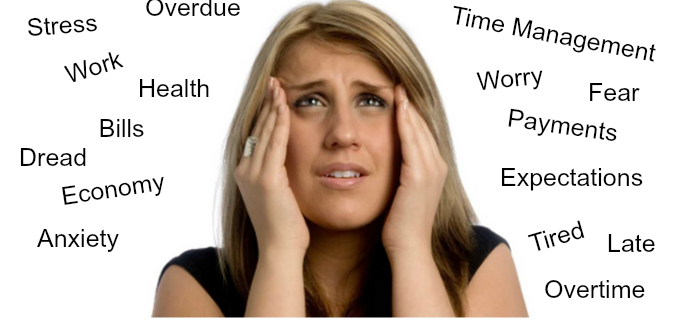“I’m so stressed out!” This simple phrase is used daily by all ages, yet growing up, I don’t ever remember hearing people talk about stress or being stressed out. I decided to do some research and I was right! I am going to age myself now, but stress wasn’t really a part of our American vocabulary until about 30-40 years ago. I remember hearing the word in the 80’s. I was married with a young family and I was working fulltime while I was a fulltime college student. I remember hearing about stress and I could totally identify! I was stressed out! It seemed in my mind that was a good thing, right? This proved to the world that I was a hard worker and a real go-getter! In the 90’s I started to have some health problems connected to stress. Racing heart, tingling down my arm, acne, weight gain, all signs that I needed to slow down, but I was a slow learner. I fed on stress, it motivated me and pushed me to do and be all.
We often times pride ourselves on our ability to multi-task and achieve more,
but we must ask ourselves if that is really good for our health, relationships and our lives?
I read an article by Victor Green stating that the word ‘stress’ has become an overused excuse for people’s failure. A word used to shield mistakes and hide normal human vulnerability. Green went on to say that when a person uses the word ‘stress,’ they expect forgiveness and understanding simply because of this word.
Can any of you identify with what he was saying? I know I could! If simply using the words “stressed out”, stresses us out, does that mean if we took the words out of our vocabulary that our performance, productivity and attitude will be far greater? I would strongly suggest, YES. You see, it is a mind game. The more stressed out you psych yourself up to be, the more stressed out you will be.
It may seem that there’s nothing you can do about stress. The bills won’t stop coming, there will never be more hours in the day for all our responsibilities and someone or something will always be demanding of our time. But you have more control than you might think. In fact, the simple realization that you’re in control of your life is the foundation of stress management. Managing stress is all about taking charge. Take charge of your thoughts, emotions, schedules, and the way you deal with problems.
Until you accept responsibility for the role you play in creating or maintaining it, your stress level will remain outside your control.
What is one thing you can do today to start managing you stress?


Recent Comments